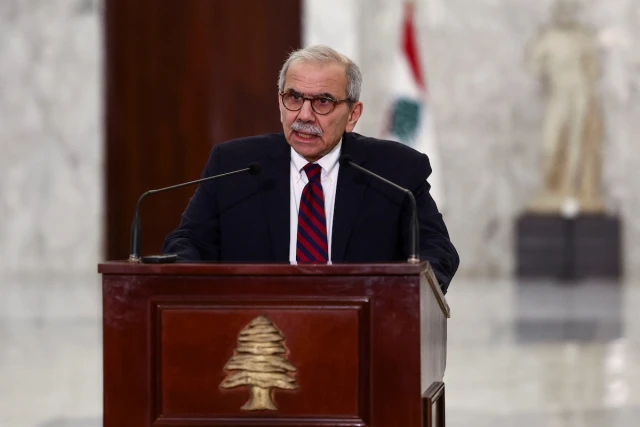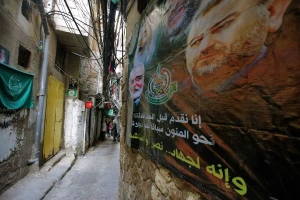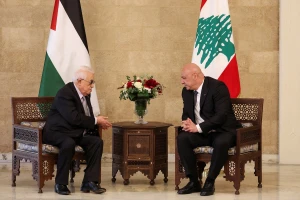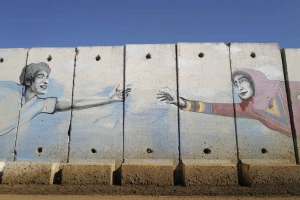Lebanese prime minister denounces Iranian imperialism, signals possible shift toward peace with Israel

Lebanese Prime Minister Nawaf Salam announced on Monday that his country rejects the Iranian regime’s revolutionary ambitions and imperialism.
“The days of spreading the Iranian revolution are over. We will not remain silent about weapons in Lebanon that are outside the control of the government,” Salam said in an interview with Sky News Arabia. Salam was likely referring to the Iranian-backed terror group Hezbollah and Palestinian terrorist factions in Lebanon.
The Lebanese government, which recently hosted Palestinian Authority (PA) President Mahmoud Abbas, has vowed to address the challenge by disarming militant groups in Palestinian camps in Lebanon before potentially challenging the far more powerful organization, Hezbollah.
Following the Islamic Revolution in Iran in 1979, Lebanon was among the first Middle Eastern countries to fall under the influence of the ayatollah regime, primarily through Hezbollah.
Prior to the Hamas Oct. 7 terror attack on Israel in 2023, Hezbollah was the most powerful player in Lebanon in terms of military and political influence. Many Lebanese have argued that Hezbollah prioritizes the imperial interests of its Iranian patron over Lebanon’s national interests. However, Hezbollah’s decision to join Hamas against Israel, resulted in the IDF delivering severe blows to the terror group.
Hezbollah’s weakening has enabled the new Lebanese government to advance efforts to reclaim authority over the country’s fractured and divided landscape.
Salam also addressed potential peace with its neighbor, Israel.
“We are a peace-seeking nation, but we want a real peace. Israel is occupying territories that belong to our country,” the Lebanese prime minister stated.
Lebanon and Israel do not maintain official diplomatic relations. While Lebanon participated in the 1948 Arab–Israeli War, it has generally sought to distance itself from broader regional conflicts involving Israel.
However, the involvement of external actors such as Syria, the Palestine Liberation Organization (PLO), and, more recently, Iran, has significantly influenced Lebanon’s position in the anti-Israel camp.
Israel has consistently signaled its interest in peace with Lebanon. However, following repeated Hezbollah attacks from southern Lebanon targeting Israeli border communities, the IDF seized areas in southern Lebanon to neutralize the threat posed by the militant group.
Earlier this year, Israel withdrew most of its forces from southern Lebanon, while calling on the Lebanese Armed Forces (LAF) to assert control over the area and prevent Hezbollah operatives from launching attacks against Israel from within Lebanese territory. Israeli soldiers remain positioned at five small outposts on Lebanese territory to help safeguard nearby Israeli border communities.
While the internationally brokered ceasefire calls for a full withdrawal of Israeli troops from Lebanese territory, it also demands that Hezbollah be disarmed and its forces be removed to the north of the Litani River.
Hezbollah, which has openly called for Israel’s destruction, has so far sent mixed signals as to whether it is prepared to disarm. Hezbollah leader Sheikh Naim Qassem recently argued that the issue is linked to a full Israeli withdrawal from Lebanon.
“Let it be clear to everyone: Don’t ask us for anything from now on. Let Israel withdraw, stop its aggression, release the prisoners, and fulfill all obligations under the agreement. After that, we’ll discuss what happens next," Qassem stated.

The All Israel News Staff is a team of journalists in Israel.
You might also like to read this:










